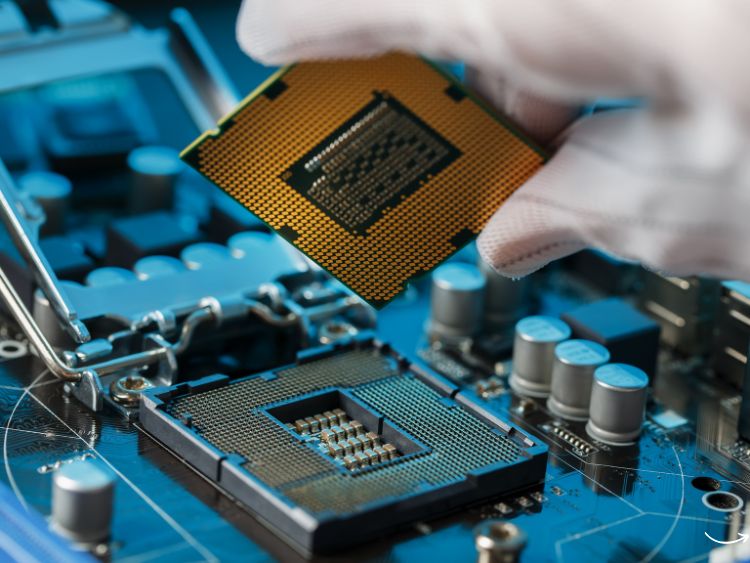Are you fascinated by the inner workings of computers? Do you find joy in assembling intricate pieces of hardware to create powerful machines? If so, a career as a computer hardware engineer might be your calling. As the demand for technology continues to surge, so does the need for skilled hardware engineers. This article explores the world of computer hardware engineer vacancies, offering insights into the job market, necessary skills, and tips for landing your dream job.
The Role of a Computer Hardware Engineer
What Do Computer Hardware Engineers Do?
Computer hardware engineers design, develop, and test computer systems and components. This includes processors, circuit boards, memory devices, and networks. They play a crucial role in advancing technology and ensuring that computer systems function efficiently. Their work involves:
- Designing New Hardware: Creating blueprints and schematics for new hardware.
- Testing and Debugging: Ensuring hardware works correctly and fixing issues.
- Upgrading Existing Systems: Improving the performance and efficiency of current hardware.
- Collaborating with Software Developers: Ensuring hardware and software work seamlessly together.
Skills and Qualifications
To excel as a computer hardware engineer, certain skills and qualifications are essential:
- Educational Background: A bachelor’s degree in computer engineering, electrical engineering, or a related field is typically required.
- Technical Skills: Proficiency in computer programming, circuit design, and hardware troubleshooting.
- Analytical Thinking: Ability to analyze complex problems and devise effective solutions.
- Creativity: Innovation in designing new hardware components.
- Communication Skills: Effective communication with team members and other departments.
The Job Market for Computer Hardware Engineers
The job market for computer hardware engineers is robust, with opportunities in various industries, including:
- Tech Companies: Major firms like Intel, AMD, and NVIDIA.
- Consumer Electronics: Companies like Apple, Samsung, and Sony.
- Automotive Industry: Advancements in autonomous vehicles and infotainment systems.
- Healthcare: Development of medical devices and health monitoring systems.
- Aerospace: Designing hardware for satellites and defense systems.
Finding Computer Hardware Engineer Vacancies
Where to Look for Job Openings
Finding computer hardware engineer vacancies requires exploring various job portals and networks:
- Online Job Portals: Websites like Indeed, LinkedIn, and Glassdoor regularly list job openings.
- Company Websites: Check the careers section of tech companies and hardware manufacturers.
- Professional Networks: Join industry groups on LinkedIn and attend networking events.
- University Career Centers: Utilize resources from your educational institution.
- Job Fairs: Attend job fairs focused on engineering and technology.
Crafting the Perfect Resume
Your resume is your first impression, so make it count. Here’s how to craft a compelling resume:
- Clear Objective: State your career goals and what you bring to the table.
- Relevant Experience: Highlight internships, projects, and previous jobs.
- Technical Skills: List programming languages, hardware design tools, and other relevant skills.
- Education: Include your degree, institution, and any certifications.
- Achievements: Mention any awards, publications, or notable projects.
Acing the Interview
Once you land an interview, preparation is key. Here are some tips:
- Research the Company: Understand their products, mission, and values.
- Practice Common Questions: Be ready to discuss your experience, problem-solving abilities, and technical skills.
- Show Enthusiasm: Express your passion for hardware engineering and the specific role.
- Ask Questions: Inquire about the team, projects, and company culture.
FAQs
What are the most in-demand skills for computer hardware engineers?
In-demand skills include proficiency in VHDL/Verilog, experience with FPGA/ASIC design, strong programming skills in C/C++, and familiarity with CAD tools for hardware design.
How can I gain experience in hardware engineering?
Internships, personal projects, and contributing to open-source hardware projects are great ways to gain experience.
What is the average salary for a computer hardware engineer?
Salaries vary by location and experience, but the average salary in the United States is around $117,000 per year.
Are certifications important for hardware engineers?
Certifications can enhance your resume and demonstrate expertise, but they are not always necessary. Relevant certifications include CompTIA A+ and Cisco’s CCNA.
What are the career advancement opportunities for hardware engineers?
Career advancement can lead to roles such as senior hardware engineer, project manager, or technical director. Further education and continuous learning are essential for advancement.
Summary
Computer hardware engineer vacancies present exciting opportunities for those passionate about technology and innovation. With the right skills, a well-crafted resume, and thorough preparation, you can land a rewarding job in this dynamic field. Stay proactive, keep learning, and seize the opportunities that come your way.
Authoritative Links
- https://www.indeed.com/q-Computer-Hardware-Engineer-jobs.html
- https://www.linkedin.com/jobs/computer-hardware-engineer-jobs/
- https://www.glassdoor.com/Job/computer-hardware-engineer-jobs-SRCH_KO0,26.htm
- https://www.intel.com/content/www/us/en/jobs/jobs.html
- https://www.nvidia.com/en-us/about-nvidia/careers/
- https://careers.amd.com/
By following these guidelines and utilizing the resources provided, you can navigate the job market effectively and secure a position as a computer hardware engineer.



